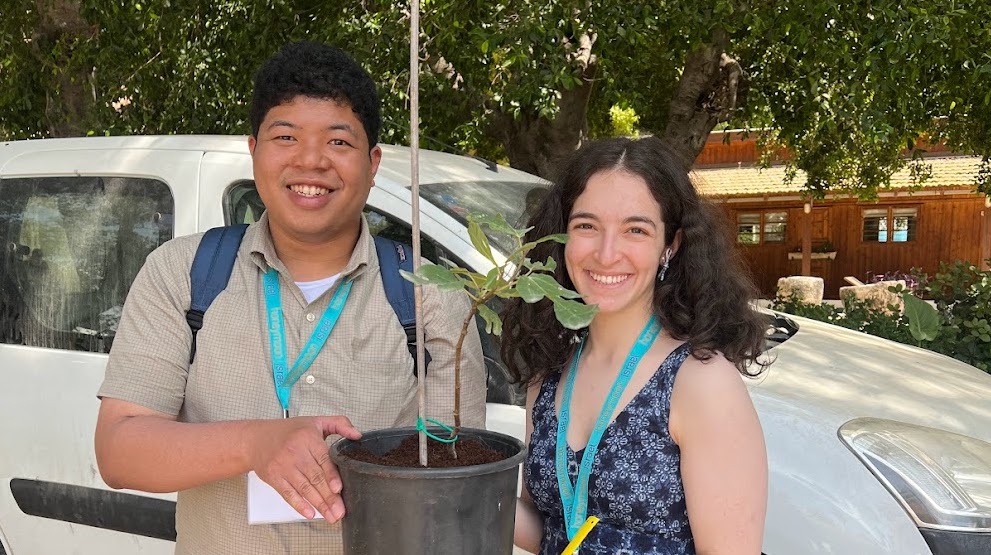Written by: Avi Rubel, co-founder and Co-CEO of Honeymoon Israel
During one of the seemingly endless COVID quarantine periods, I had an epiphany. Not being able to run HMI trips for so many months made me realize how much I love my work and how much gratitude I feel to the HMI participants, staff, and funders for bringing so many people to Israel each year. While I’m proud to facilitate our participants’ travel to Israel, I can’t ignore the environmental cost of international travel. Climate change is THE great issue of our day, and while I wholeheartedly believe in bringing more and more people to Israel, how can I concurrently do something positive for the planet?
Over the following months, I shared this idea with many different people – HMI alumni, policy makers, activists, scientists, and other Israel travel professionals. Almost universally, the response was similar to my own feelings: we need to encourage and increase Israel travel, but we have to do something to offset the negative environmental impact of our flights and other ground operations damage in Israel.
On this journey, I met Sara Bogdan, an HMI alumna from New York who is also the Chief Sustainability Officer for JetBlue Airline. Together, we decided to create a committee of alumni that will help HMI on the journey toward sustainability. We’ve also begun to pilot a few climate positive initiatives on our trips. The first initiative is a partnership with the Good Energy Initiative, an Israeli NGO that is a leader in Israel on sustainability, alternative energy, and urban greening. During the last few trips, participants from multiple cities had the chance to plant trees that will become part of a larger HMI urban forest in a city in Israel. As an additional way to make an impact, participants were offered the opportunity to make a $100 donation to the Good Energy Initiative as a climate positive investment to offset the estimated carbon emissions of one round trip flight to Israel.
In the future, HMI hopes to provide participants with the opportunity to hear from climate tech pioneers in Israel who are developing ideas and technology that will have a positive global impact. Examples include speakers and workshops offered by innovators in the alternative protein/food field, carbon capture, Israel’s water technology, and more.
The younger generation is often described as being more distanced from Israel. As our teacher Avraham Infeld suggests, we encourage our participants to love Israel but not always to like everything it does. When it comes to climate change, we can simultaneously do the right thing for the planet and showcase some of the best that Israel has to offer. As this program grows, I hope to partner with other organizations and initiatives to ensure that a climate positive ethos becomes imbued within the entire Israel travel industry.







